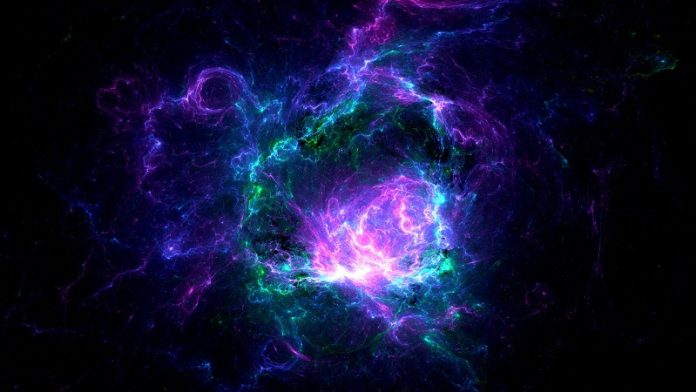
Scientists have discovered that tiny particles of cosmic dust may play a much more important role in creating the building blocks of life than previously thought.
Instead of just floating quietly through space, these microscopic grains can help simple chemicals combine into more complex molecules — even in the freezing temperatures of deep space.
An international team of researchers from Heriot-Watt University in the UK, Friedrich Schiller University Jena in Germany and the University of Virginia examined how two common space chemicals, carbon dioxide and ammonia, behave in extremely cold conditions. On their own, these chemicals do not react very well.
But when they come into contact with mineral dust, something surprising happens.
The dust acts like a catalyst, giving the chemicals a surface where they can meet and react more easily.
This allows them to form a compound called ammonium carbamate, which is believed to be an important step toward making more complex molecules such as urea, a key substance found in living organisms.
To test this idea, scientists recreated space-like conditions in the laboratory. They cooled samples of carbon dioxide and ammonia to around –260°C, similar to the temperature in interstellar clouds.
Between these frozen layers, they placed tiny grains of porous silicate dust, which closely resemble the kind of dust found drifting through space.
When the temperature was gently increased to about –190°C, similar to conditions found in regions where planets begin to form, the chemicals began to move around the dust particles.
As they spread over the surface of the grains, they reacted with each other and produced ammonium carbamate. When the same chemicals were tested without the dust, the reaction barely occurred.
This experiment showed, for the first time, that a special kind of chemical reaction called acid–base catalysis can take place in space-like environments, driven by the surface of dust grains.
In simple terms, the dust helps transfer tiny particles called protons from one molecule to another, which allows new molecules to form.
This process may be happening naturally throughout the universe, inside the dark clouds where stars and planets are born.
These findings suggest that cosmic dust is not just debris drifting in space. It may actually be creating tiny chemical “workshops” where the ingredients for life can start to come together.
The researchers now plan to study whether other important molecules can also form this way and whether this chemistry is happening in real protoplanetary disks today.
If so, cosmic dust could be one of the first quiet steps in the long journey from simple chemicals to living worlds.



